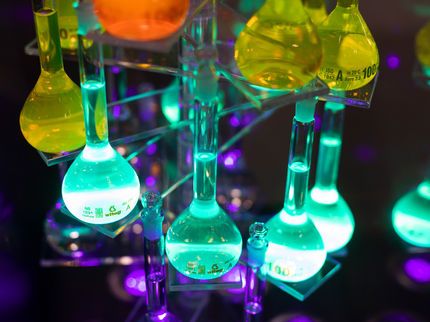Recyclates: Recycled Materials as the Next Step Towards Increased Sustainability for High-End Laboratory Consumables
Disposable racks made from contact lens production leftovers
In life science laboratories, where precision and purity are non-negotiable, the demand for environmentally friendly solutions is now higher than it has ever been. Laboratories are grappling with the environmental impact of their activities, and they are aware that the ever-increasing demand for plastic consumables is not resource-friendly. Therefore, in order to become more sustainable, future laboratory consumables made from plastic materials must be able to be manufactured from renewable or recycled raw materials.
Eppendorf’s commitment to sustainability is evident in many areas, including in the transition of laboratory consumables to biobased raw materials, beginning in 2022. At the same time, recycled materials also show great potential for those parts of a product which do not come into direct contact with the sample. Recycled materials, also known as recyclates, are generally known as re-used plastics made from PE (polyethylene), PP (polypropylene) or PET (polyethylene terephthalate), which have been discarded at least once by households or businesses and which are used for the manufacture of new products.
“The “Post Consumer Recyclate (PCR)” used for disposable racks for pipette tips is of industrial origin, obtained exclusively from leftover materials arising during the contact lens manufacturing process” says Brigitte Klose, Global Marketing Manager for Consumables at Eppendorf SE. “This type of “single source” intra-type collection of polypropylene from the production of medical products ensures that the recyclate will retain the purity and integrity which are a condition of the manufacturing process of laboratory consumables. We request documentation from our suppliers with respect to the traceability of the recyclate, as well as compliance of all processes with EN 15343:2007.”
Since late May of this year, Eppendorf has initiated the transition to recyclates of those containers which enclose consumables. Initially, this transition pertains to racks for single-use pipette tips which are typically used in laboratories conducting sterile work. These single-use racks are indispensable for the utilization of the pipette tips. The racks provide the pipette tips with stability and protection, to the very last tip. Like the pipette tips, these single-use racks must be of the same purity and sterility, and thus far, they had been manufactured from highly pure fossil-based polypropylene. “This transition to recyclate will conserve this limited fossil fuel resource, and Eppendorf will achieve a savings of more than 166 tons of CO2 per year” Klose says.
This change in the polypropylene used for the manufacture of the racks will influence neither the purity, nor the sterility or the stability of the epT.I.P.S.® pipette tips in single-use racks. Our customers can switch easily, without suffering any loss of quality. This is further verified by lot-specific quality certificates.
Other news from the department business & finance
These products might interest you
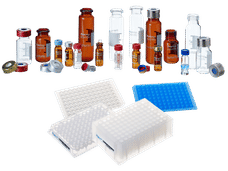
SureSTART Vials and Well Plates by Thermo Fisher Scientific
SureSTART autosampler vials for all chromatography applications and budgets
3 performance level: Easily select products suited to your analytical, performance or value needs
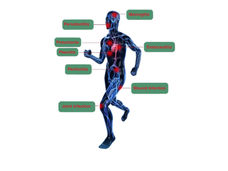
SepsiTest™-UMD CE IVD by Molzym
Make yourself independent: 16S/18S PCR for pathogen identification
Fast and precise detection of bacteria and fungi in blood/body fluids and tissue
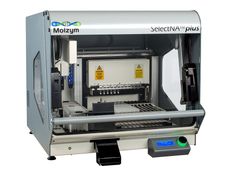
Micro-Dx™ CE IVD by Molzym
Fully automated from sample to PCR analysis
Rapid identification of bacteria and fungi without time-consuming cultivation
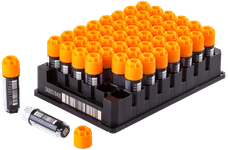
Consumables & Instruments by Azenta
Azenta's Sample Consumables and Instruments
Improve sample tracking, ensure sample integrity, and drive process efficiency
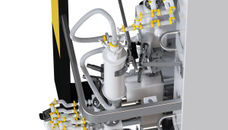
Sartobind® Rapid A by Sartorius
Efficient chromatography with disposable membranes
Increase productivity and reduce costs with fast cycle times
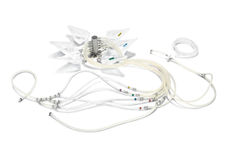
Ksep® Consumable Kits by Sartorius
Ksep® Kits: Cell clarification and harvesting made easy
Automated solutions for higher yield and quality in bioprocessing

Greener Alternative Products by Merck
Sustainable laboratory products for environmentally conscious research
Over 2,500 ecological alternatives to reduce your laboratory footprint

Get the life science industry in your inbox
By submitting this form you agree that LUMITOS AG will send you the newsletter(s) selected above by email. Your data will not be passed on to third parties. Your data will be stored and processed in accordance with our data protection regulations. LUMITOS may contact you by email for the purpose of advertising or market and opinion surveys. You can revoke your consent at any time without giving reasons to LUMITOS AG, Ernst-Augustin-Str. 2, 12489 Berlin, Germany or by e-mail at revoke@lumitos.com with effect for the future. In addition, each email contains a link to unsubscribe from the corresponding newsletter.
More news from our other portals
See the theme worlds for related content
Topic world Pipetting
Pipetting is one of the most basic yet critical techniques in the laboratory. It enables the precise and controlled transfer of liquids, which is essential for accurate measurements and reliable results. Whether in DNA analysis, cell culture or biochemical assays, correct pipetting significantly influences the quality of the results.

Topic world Pipetting
Pipetting is one of the most basic yet critical techniques in the laboratory. It enables the precise and controlled transfer of liquids, which is essential for accurate measurements and reliable results. Whether in DNA analysis, cell culture or biochemical assays, correct pipetting significantly influences the quality of the results.
Sustainability in the laboratory
The main topic of sustainability in the laboratory highlights innovative approaches and technologies that reduce the ecological footprint in laboratories. These include energy-efficient equipment, resource-saving consumables, green chemistry, recycling initiatives and sustainable laboratory management solutions.

Sustainability in the laboratory
The main topic of sustainability in the laboratory highlights innovative approaches and technologies that reduce the ecological footprint in laboratories. These include energy-efficient equipment, resource-saving consumables, green chemistry, recycling initiatives and sustainable laboratory management solutions.

